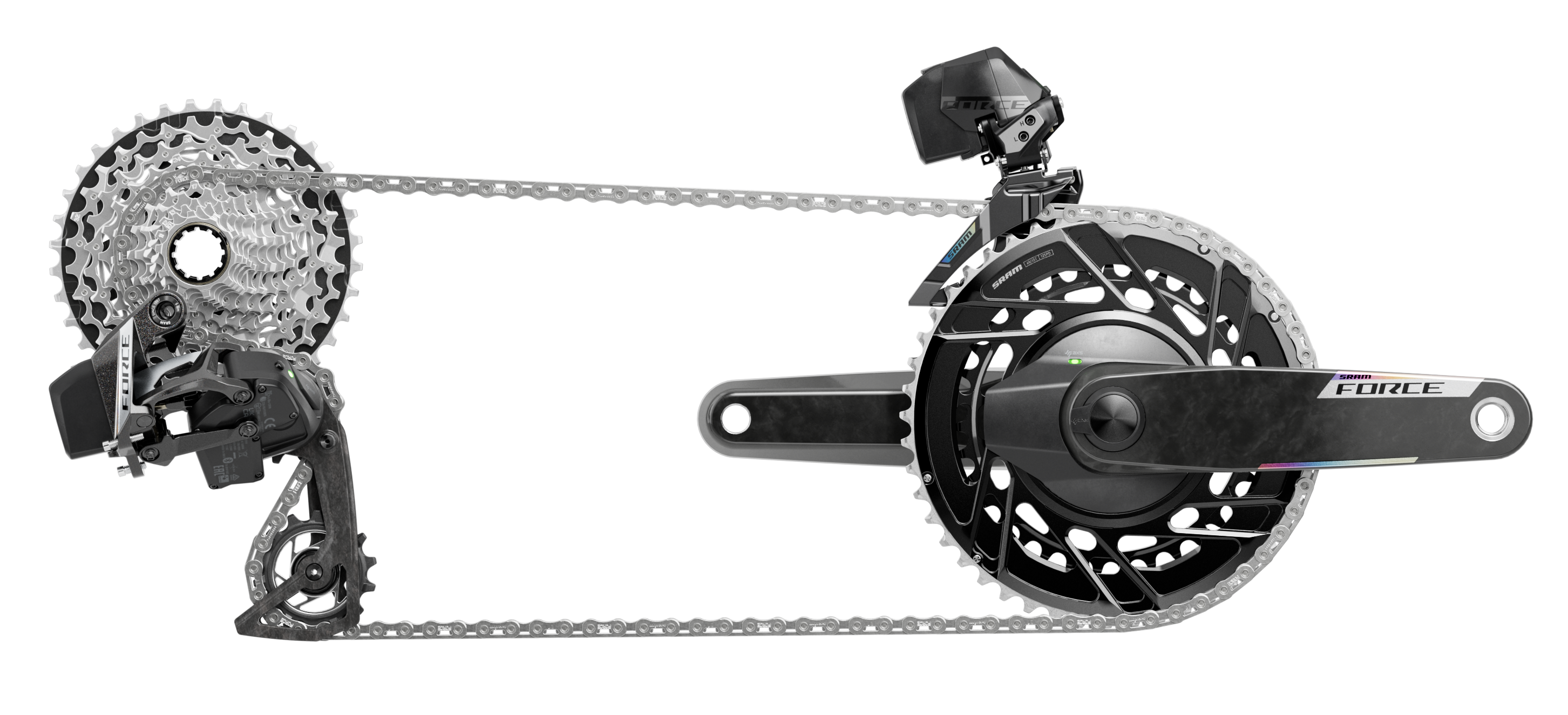The ongoing clash between SRAM and the UCI over proposed gear restrictions has taken a significant turn. The Belgian Competition Authority (BCA) has ordered the UCI to suspend its planned trial limiting gear ratios. The trial rules were originally scheduled to take effect for the upcoming Tour of Guangxi. However, the ruling gear cap rule cites serious competition law concerns and potential harm to SRAM and its sponsored WorldTour teams.

A Suspension That Hits the Brakes on Controversy
The UCI’s now-shelved rule would have capped riders’ top gearing at 54×11. The organization said the gear cap is intended to improve safety by reducing maximum speeds. The BCA wasn’t convinced. In its ruling (issued October 9), the authority said the rule “does not meet the required conditions of objectivity and transparency”. Stating the capped gearing rule could cause “serious and difficult to repair harm” to SRAM’s business and reputation.

SRAM, the only major drivetrain manufacturer currently lacking a compliant 54×11 setup, argued that the rule unfairly singled out its product line. The BCA agreed, finding that the UCI’s decision was “adopted under disputable conditions” and risked disadvantaging SRAM-equipped teams.

The Fallout — and What It Means for Racing
The ruling effectively halts the UCI’s gearing trial until the governing body can produce a version that meets standards of “proportionality, objectivity, transparency, and non-discrimination.” The BCA also ordered the UCI to acknowledge the suspension publicly and warned that failure to comply could result in penalties.
SRAM CEO Ken Lousberg didn’t mince words earlier this month, saying the rule “penalises and discourages innovation”. Sataing it has already caused “reputational damage, market confusion, and potential legal exposure.”

The UCI, however, doubled down in response to the ruling. In a statement, it expressed “surprise at the intervention of a competition authority on a matter desired by all stakeholders.” It reiterated that the measure was designed around rider safety, not competition bias. Still, the UCI has confirmed it will appeal the decision and “adjust the protocol” for potential future trials.

Why It Matters
This case isn’t just about one rule or one brand (though it really seems like it). The dispute is a larger fight over how far the UCI can go in shaping the technical evolution of pro cycling. However, it isn’t limited to gears; new UCI regulations on handlebar width, wheel depth, and helmets have already sparked massive debate this year. The updated BCA ruling sets a clear precedent: governing bodies can’t impose restrictions that directly limit manufacturer competitiveness without due process and transparency.
For SRAM, it’s a big win — both legally and symbolically. For the UCI, it’s a reminder that even well-intentioned safety rules have to play fair in the modern, highly commercialized world of cycling tech.
